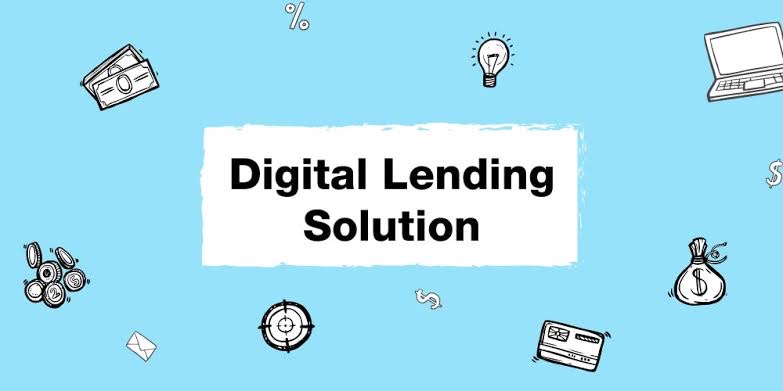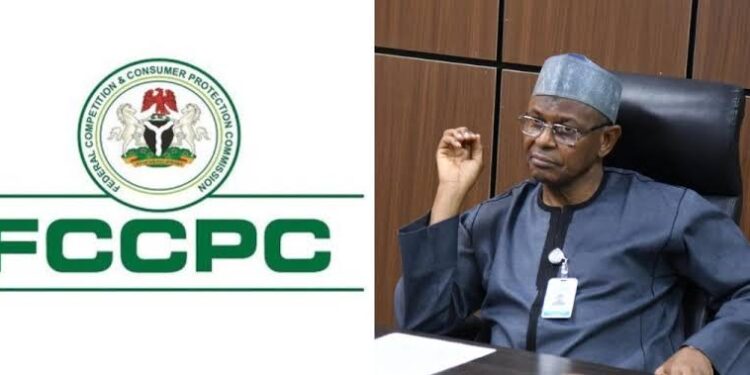In recent times, Nigeria has witnessed a significant rise in the number of companies approved to provide loans via digital platforms, commonly known as loan apps.
As of September, this number surged to 320, up from 284 in May. The increase in digital lenders comes at a time when many Nigerians are facing severe economic challenges, driving a greater demand for quick loans.
According to the companies operating in the digital lending space, the number of loan applications submitted by Nigerians has quadrupled in 2024 alone. This sharp increase highlights the growing financial pressure on households and individuals, with many turning to these platforms to meet their urgent financial needs.
The 320 approved companies in the digital loan market have all secured their licenses either from the Federal Competition and Consumer Protection Commission (FCCPC) or the Central Bank of Nigeria (CBN). A closer look at FCCPC’s database reveals that 264 of these companies have received full approval from the Commission, while 42 others operate under conditional approval. In addition, 14 of the loan apps are licensed by the CBN, marking them as credible sources of financial relief for many Nigerians.

Growing Popularity of Digital Lending
The surge in companies entering the digital lending market is driven by several factors. One primary reason is the relatively lower barriers to entry for digital lending compared to traditional financial institutions, such as microfinance banks. The chairman of the Money Lenders Association, Gbemi Adelekan, highlighted this in an interview, stating, “Right now, the first thing that you would want to do if you’re in the financial sector is to go into digital lending. If you think of microfinance, the regulation is tighter, and the licence is costly. This is why many companies are coming into the space.”
This ease of entry into the digital lending market makes it an attractive option for businesses looking to serve the growing demand for financial services. In contrast to the more rigid regulations governing traditional financial institutions, digital lenders find it easier to launch and scale their operations, allowing them to cater to a broad base of consumers.
Rising Demand for Loans Amid Economic Hardship
In addition to the ease of entry for businesses, the rising demand for credit is another key factor fueling the growth of digital lending in Nigeria. With the country’s economic challenges worsening, more people are relying on credit to meet their daily needs. For many, digital loan apps provide a quick and accessible way to secure financial assistance without the lengthy processes associated with traditional banks.
Adelekan provided insights into the current demand for loans, particularly for his own company, KwikPay Credit. “During the COVID period, when everybody was sitting at home, we would get around 1,000 applications weekly. But now, we are receiving between 5,000 and 6,000 applications weekly. A lot of people want loans,” he said.
However, while the demand for loans has surged, many applicants are unable to qualify due to poor credit histories. Adelekan noted that approximately 90% of loan applications are rejected after passing through basic verifications like Bank Verification Number (BVN) checks. “One of the first things we do is to check whether an applicant has a financial footprint. Unfortunately, out of 5,000 applications, the system will reject 4,500 of them instantly,” he explained.

Despite these challenges, some lenders are willing to lower their risk thresholds in a bid to acquire more customers. These lenders offer small loans, known as “nano loans,” which typically range between N3,000 and N5,000. To cover the high risks associated with non-payment, these loans often come with steep interest rates.
The Problem of Unregistered Loan Apps
Despite the rise in the number of registered digital lenders, the market is still saturated with hundreds of unregistered loan apps. These unregulated platforms continue to attract desperate borrowers, often resorting to unethical practices such as defaming or harassing their customers to recover debts.
In an effort to tackle the menace of these illegal loan apps, the FCCPC has placed 88 loan apps under its watchlist and has delisted 47 apps from the Google Play Store. The FCCPC’s Executive Commissioner of Operations, Dr. Adamu Abdulahi, stated that the Commission’s primary goal is to identify the companies behind these apps through its Interim Regulation and hold them accountable for any infractions.
Before the implementation of this regulation, it was nearly impossible to trace or hold these unregistered companies responsible for any wrongdoings. The FCCPC is striving to create a balanced framework where digital loan apps can continue to operate while ensuring borrowers are protected from exploitation.
A Framework for Fair Lending Practices
The FCCPC’s efforts to regulate the digital lending space began in 2022, under the leadership of its former chairman, Babatunde Irukera. In collaboration with the Joint Task Force (JTF), the Commission introduced the Limited Interim Regulatory/Registration Framework and Guidelines for Digital Lending. This initiative was designed to promote transparent and fair lending practices while offering Nigerians alternative credit options.
The growing need for oversight became clear as complaints of unethical behavior and rights violations by illegal loan apps escalated. The FCCPC has made considerable progress since then, with the number of registered loan apps increasing from 284 in May to 320 by September. The Commission continues to work toward sanitizing the space, ensuring that both lenders and borrowers can operate in a fair and transparent environment.
Conclusion
As Nigeria continues to grapple with economic challenges, the rise of digital lending has provided much-needed financial relief for many citizens. With the number of registered digital loan apps on the rise and increased efforts to regulate the space, the industry is poised for further growth. However, the ongoing challenge of unregistered and unethical loan apps underscores the importance of regulatory oversight in ensuring that the sector operates in a manner that benefits both lenders and borrowers.


































